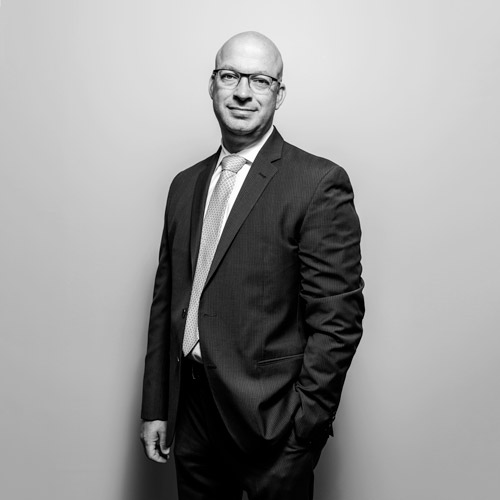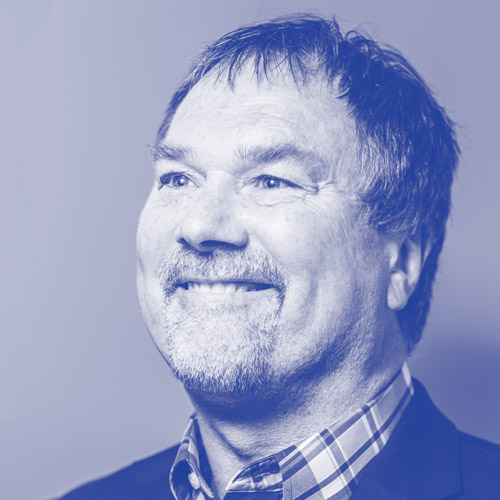Denise Clark has been a leader in change and governance programs throughout her career, which spans the US military and several of the world’s most well-known brands. Now, as chief information officer of The Estée Lauder Companies (ELC), Clark leads a global team that prides itself on bringing innovation and efficiency to the iconic cosmetics enterprise.
Power up your social conscience
Denise Clark is committed to philanthropy, both as chief information officer at The Estée Lauder Companies (ELC) and outside of her professional life.
In addition to being on the board of directors for United Natural Foods Inc., she spent six years as the chairwoman of the National AIDS Fund board of trustees. “When you see the power that one person can have in making a difference in the lives of one or many people, it is just amazing,” Clark says.
Clark brings this compassion to her role at ELC as well, where she instituted a global “Day of Service.” Her team members around the world donate a workday to a charity of their choice.
As someone who transitioned from the military to the private sector, Clark also works closely with the United Service Organization (USO) to digitize its marketing and advertising initiatives. Clark says, “A part of my responsibility as an executive is to give back using all of the resources we have available to us every day.”
“The Estée Lauder Companies is hugely successful,” Clark says. “Our success can be attributed to our strategy focused on long-term sustainable growth and our emphasis on execution.”
One way that Clark ensures execution is promoting accountability and efficiency when handing projects between groups. With a global team that interfaces with many different departments and smaller subsidiaries, agility is crucial.
“Beauty is certainly different than toys, but a similar understanding and approach applies to the role of the CIO across industries,” says Clark, who has worked at Fisher-Price, Hasbro, and Mattel, among others.
To facilitate strategies across twenty-five-plus prestige beauty brands that encompass the greater company, Clark reaches more than fifty stakeholders as ELC is a “brand-driven company,” a quality that Clark admires.
“[The customer] is now buying her products whenever and wherever she wants to. Today, it is typically through her mobile phone, which is different than her path to purchase three years ago,” Clark explains. “We are constantly evolving to keep up with the way that she wants to buy our products.”
The biggest development from a technology perspective is enabling an omnichannel experience, or allowing customers to purchase at home and pick up in store, or vice versa. Clark’s goal is to build omnichannel capabilities that seamlessly connect consumers across ELC brands’ websites and freestanding stores.
“My leadership style today is defined by my time in the military,” says Clark, who worked with people of various cultures and demographics while serving the United States. Her time spent abroad gave her a global perspective and a deep understanding of the global business environment. These varied experiences have helped Clark excel in multinational companies.
Describing herself as a “significant change agent,” Clark explains that the military prepared her for the unexpected and showed her how to be a nimble leader.
“It is life and death many times,” says Clark, who spent part of her career as a cryptologist and analyst. “Military training prepares you for unexpected events that could occur as a result of whatever mission you are on.” She completed her thirteen years of service having supported both the National Security Agency and US Space Command as operations watch officer to the sixth fleet and officer in command of the Joint Defense Space Communications Station.
With more than twenty years of experience in the consumer packaged goods industry, Clark has utilized this ability of transformation and change. At the executive level, she assesses what is working well and what needs to change at a company, coordinating with business stakeholders as she identifies and solves issues.
“Technology is ever-changing. I can’t think of a better profession to be in today,” Clark says. “I don’t think anyone anticipated the explosion that is still continuing in the technology space.”
Clark—who spent time at Apple when she first transitioned from the military to the private sector—believes that transactions are occurring faster than ever. For IT, this means getting products to market faster, understanding trends, and reacting to them quickly. “IT has to operate with urgency,” she says.
Given today’s global economic climate, brands need to be locally relevant around the world. Clark addresses the importance of testing technology across all consumer experiences and regions. For example, what may make sense in New York City may not perform as well in a duty-free store in another major city’s airport.
With new technologies, Clark adopts a mantra of “fail fast and fail cheap.” She prides herself on always asking, “Why would you have that in the store? What is the outcome? What is the value to the consumer?”
Working in male-dominated industries, she was lucky to have more than a few mentors throughout her career. “I didn’t grow up believing that I would be a CIO of a Fortune 500 company,” she says. “I had to work hard to get here.” She credits her mentors with the invaluable insight that encouraged her along the way.
Now as a leading executive, Clark prides herself in returning the favor by mentoring younger colleagues at ELC. She describes this as a “critical turning point in anyone’s career,” and she receives much gratification from helping her younger compatriots whenever the occasion arises.
“It is very important to have a strong mentor in your career who can help provide the insights and guidance that will help inspire and motivate you to succeed,” she says.

